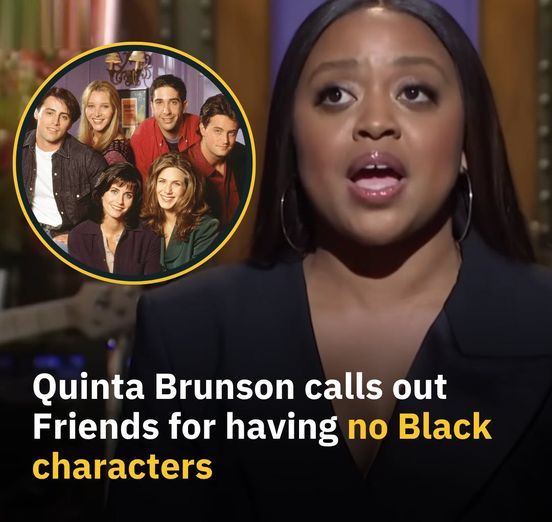There has been a lot of discussion recently about diversity and the need to have it in all areas of life. Sometimes, people also look at it in a retrospective way, and that is the case with the popular television show, Friends.
Quinta Brunson is well known for the role that she played in Abbott Elementary. Recently, she called out the popular 90s television show, Friends, because it was lacking diversity.

She was hosting Saturday Night Live and brought this subject out during the monologue. While she had the spotlight, she drew attention to the sitcom, saying how there were no black friends on the show.
She also spoke about her show, Abbott Elementary. It looks into the lives of teachers who are navigating a state-funded elementary school that is primarily black in the city of Philadelphia.
When you look at the diversity on Abbott Elementary and compare it with what was on Friends, it’s easy to see the difference.
She said: “I wanted to be on SNL back in the day but the audition process seemed long – so instead, I just created my own TV show, made sure it became really popular, won a bunch of Emmys, and then got asked to host. So much easier, so much easier.”
The audience was in agreement with her and she continued: “It’s a network sitcom like, say, Friends. Except, instead of being about a group of friends, it’s about a group of teachers. Instead of New York, it’s in Philadelphia and instead of not having Black people, it does.”
Although it was a playful commentary, there were many people who felt very strongly on the subject. This included Martha Kauffman, one of the creators of the show, Friends. She had expressed embarrassment over the lack of diversity in the show and pledged $4 million to a university to support the African and African-American studies departments.
Kauffman said: “I’ve learned a lot in the last 20 years,” adding: “Admitting and accepting guilt is not easy. It’s painful looking at yourself in the mirror. I’m embarrassed that I didn’t know better 25 years ago.”
She continued: “It took me a long time to begin to understand how I internalized systemic racism. I’ve been working really hard to become an ally, an anti-racist. And this seemed to me to be a way that I could participate in the conversation from a white woman’s perspective.”
This will always be a subject to consider, but it sounds like the debate is well along for one sitcom.
